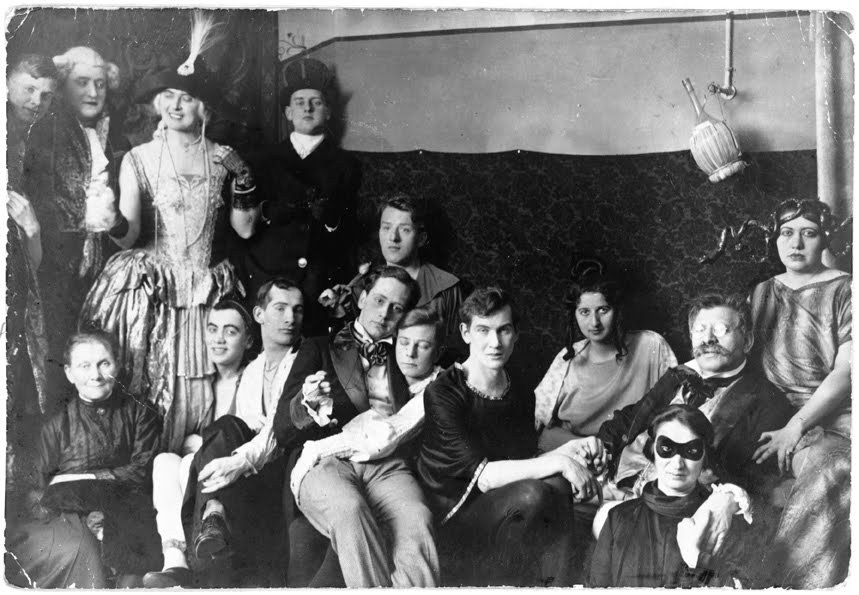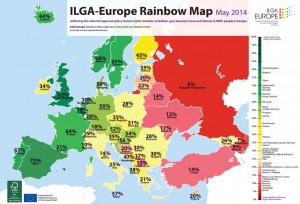What’s in a word?
Magnus Hirschfeld


May 17, each year, is IDAHO day, the International Day Against Homophobia and Transphobia, since 2009 called IDAHOT to fully incorporate Trans people. I’ve always prefered the longer IDAHOBIT to include Homophobia, Biphobia, Intersexphobia and Transphobia, not to mention the little people with hairy feet from Middle Earth!
May 17 was the day that homosexuality was removed from the International Classification of Diseases (ICD) of the World Health Organization (WHO) in 1990. IDAHO day first took place in 2005 with activities taking place around the world including the first ever LGBT events to take place in the Congo, China, and Bulgaria.
In 2009 Transphobia was added to the day’s remembrance and activism although, unlike homosexuality, trans activists are still campaigning to have Gender Dysphoria removed from the various mental health classifications (ICD10/11, DSM-IV/V), though France was the first country to do so that same year. In May 2012 Argentina passed a radical groundbreaking Gender Identity Law depathologising trans and providing medical access for all without psychiatric hoop-jumping. Argentina should be watched and observed to see if its model becomes one that could be followed by other nations and allow for the safe and full depathologisation of transsexuality.
Times have changed and things improved since the removal of the criminal threat and mental health stigma from homosexuality, at least. If a recent ILGA LGTBI report is to be believed, Britain is the best place to live if one is lesbian, gay, bisexual, trans or intersex.
 Launched to mark IDAHOT day, the ILGA Rainbow Europe Map “reviews the standing of European countries against essential legal benchmarks for LGBTI equality, while the Annual Review of the Human Rights Situation of LGBTI People in Europe 2014 provides an analysis of trends and an overview of key political and social developments country-by-country.”
Launched to mark IDAHOT day, the ILGA Rainbow Europe Map “reviews the standing of European countries against essential legal benchmarks for LGBTI equality, while the Annual Review of the Human Rights Situation of LGBTI People in Europe 2014 provides an analysis of trends and an overview of key political and social developments country-by-country.”
For many there were improvements, such as same-sex marriage (although not in Northern Ireland) and for some to the East of Europe, such as Russia, a deteriorating situation of LGBTI freedoms and protections.
Apparently, the UK has the best laws (the 2010 Equality Act was pretty groundbreaking), rights and freedoms, even better than the Netherlands, Spain, or Scandinavia. This is partly down to some nations being gay and lesbian positive but then failing on trans and/or intersex, and usually totally ignoring and hence erasing bisexuals.
Here in the UK, homophobic and transphobic crime seems to be on the rise, although this may just be perception and/or data inflation, since increased numbers may just be better victim reporting and police recording, rather than increased incidence of hate crimes or incidents. We’ve been tackling racism for decades and it doesn’t go away over night. Just ponder the upcoming European elections and the 30% vote share that UKIP the party of xenophobia are likely to gain. Fear of difference is still endemic everywhere.
A recent NUS report into the experience of gay and trans students demonstrates that schools and colleges are still not safe places for LGBTI people. Only 20% of trans students feel safe or accepted in higher education. 20% of LGB+ students and 33% of trans respondents experienced at least one form of bullying or harassment on their campus, making them 2-3 times more likely to drop out of education, affecting future job prospects, and mental health and wellbeing.
Trans students are 2.5 times more likely to have a disability in addition to being transgender. They are, furthermore, the group at the greatest risk of suicide with 34% attempting it and up to 80% considering it. Thankfully, the UK is better than many other places and these figures are greatly increased elsewhere, e.g., the USA, Eastern Europe, etc.
The right to bodily integrity of people with Intersex conditions (people with differences of sexual development, sometimes unhelpfully termed “disorders”, DSD) is an issue still being fought for. Just because gay rights are seemingly “in the bag”, same-sex weddings won, does not mean trans or intersex people have the same or equal benefits, nor does it mean that any LGBTI person is free from bullying, hate crime or prejudice in the workplace.
Equality itself is not yet equal, either between different strands of the diversity umbrella of protected characteristics nor across different countries in the EU, Commonwealth, or world. Some 80 nations have laws that still criminalise homosexuality, some with the death penalty. Just because a civil rights battle is part-won in one country does not mean that is everyone’s experience, either at home or abroad. So days like IDAHOBIT, regional and national LGBTIQ Prides, are still needed to remind us of how far we have come, and… how far we still have to go to achieve equality, acceptance and freedom for all.
For more information about LGB+ sexualities, the transgender spectrum, and intersex variations, visit Genderagenda.net, and on facebook: facebook.com/GenderAgenda
On International Transgender Day of Visibility (31 March) see:
http://www.bubblews.com/news/2812307-international-transgender-day-of-visibility
On Bisexual Visibility Day (23 September) see:
http://www.bubblews.com/news/1194960-bi-visibility-day-celebrating-bisexuality
On the Intersex day of Awareness (26 October) see:
http://www.bubblews.com/news/1427921-intersex-day-of-awareness
On the Transgender Day of Remembrance (20 November) see:
http://www.bubblews.com/news/1622567-transgender-day-of-remembrance-tdor-and-awareness-week
FIrst published here.
best herbal supplements sex drive cbd gummies and erection extenze fast acting male enhancement long lasting sex without pills top gun male enhancement pills safety of rlx male enhancement does maca root help with sex drive rhino 200k pill review male sex pills onenight stand over the counter penis enlargement pills pills for stronger erection otc alpha q male enhancement reviews 10 pack male enhancement pills top 10 natural erection pills medically enlarging a penis does male enhancement stiff nights work what drugs can help with erectile dysfunction vegas strips male enhancement reviews diet while using ed pills consumer reports male enhancement productsedema from blood pressure medication low blood pressure reasons and treatment which blood pressure medications protect kidneys blood pressure medications and weight gain alcortin blood pressure medication what is a cheaper version of bystolic blood pressure medication blood pressure medication at night time cinnamon blood pressure medication b blood pressure medication how to lower high blood pressure fast without medication naturally low blood pressure and chicago medical proven ways to lower your blood pressure without medication high blood pressure medication clonidine what are common side effects of high blood pressure medication medications taken for high blood pressure do high blood pressure medications thin the blood high blood pressure hypertension diagnosis and treatment mayo mayo clinic accent seasoning and blood pressure medication prednisone and blood pressure medication can i just stop taking my blood pressure pills